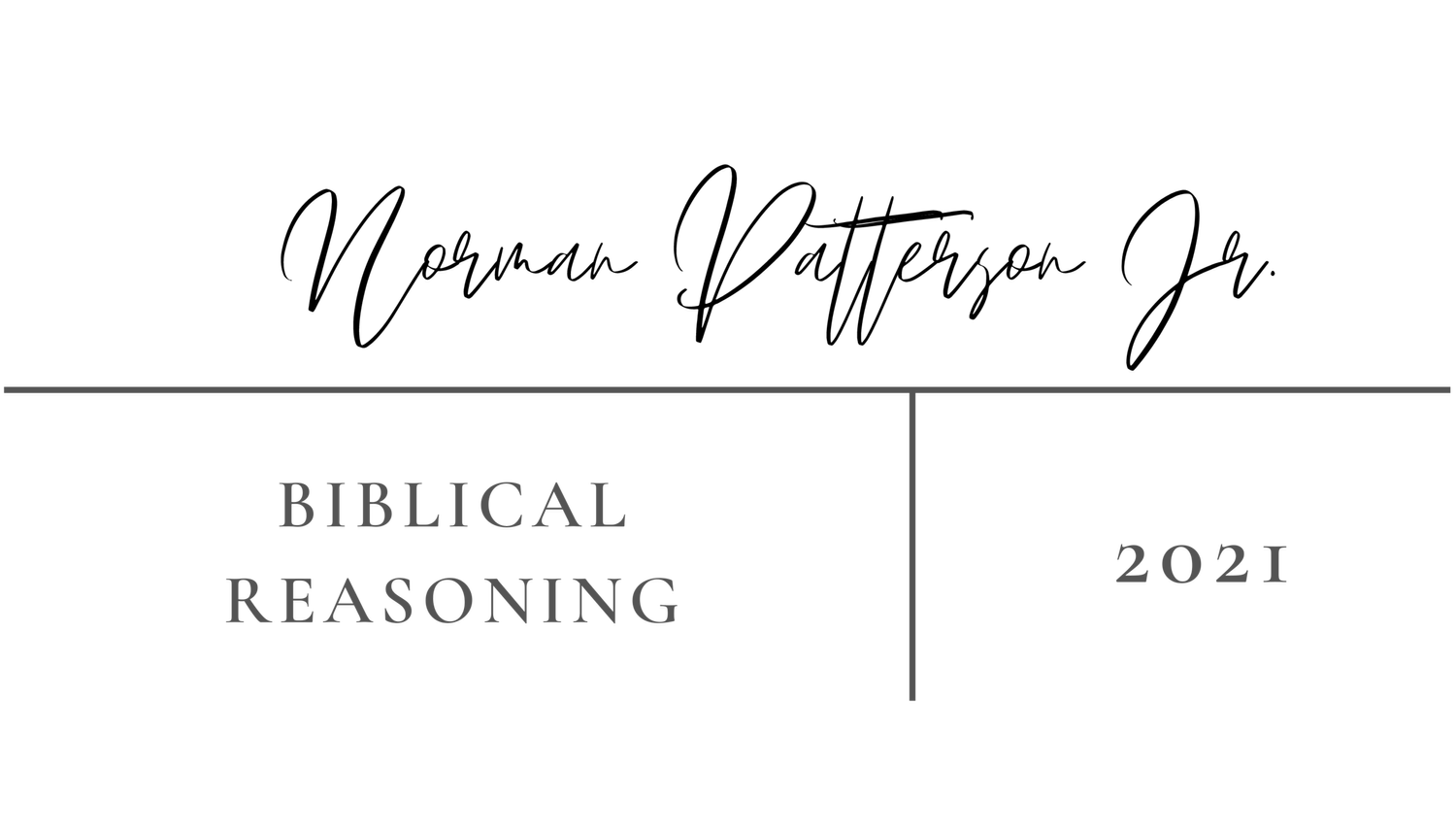Counterfeit Christianity: Exegesis or Exit Jesus
Introduction
When I was in seminary in Wilmore, Kentucky, most of the students were from the south. They spoke with heavy southern accents that sometimes made understanding difficult. During my first semester there, I kept hearing seniors talking about a course that sounded like, "exaaJeesus.". I thought they were saying “exit Jesus.” It took me a while to understand that they referred to a required course called Greek "Exegesis."
Definitions
That may be a new term for some of my readers. Exegesis is a Greek term made up of two root words. The first part is "ex," which means "out of." We get the word "exit" from the same root. The second part is from the Greek word "hegeisthai," which means "to lead or to guide." So, exegesis means "to lead out of."
What does that have to do with the Bible and Counterfeit Christianity? To "exegete" the Bible means to let the Bible speak for itself. Instead of reading into the Bible our own meaning, we seek to discover the sense that "leads out" from the Text itself. The exegete (the one studying the Bible) seeks to determine what God's intended meaning is in every passage.
The opposite of exegesis is another Greek term - "eisegesis." The prefix "eis" here means "into" rather than "out of." The second part of the word is the same, so "eisegesis" means "to lead into." In other words, to "eisegete" the Scripture means to read into the Bible some preconceived idea, philosophy, notion, or worldview.
Who Determines Meaning?
Believe it or not, the difference between exegesis and eisegesis is at the heart of literary interpretation and not just Biblical interpretation. Who has the authority to determine the meaning, the author of the reader? When we interact with the creation of another, who determines meaning? If you believe the author does, then you believe in exegesis. If the one experiencing the work has final authority over meaning, then you believe in eisegesis.
This is of the utmost importance when it comes to Bible interpretation. Who has the ultimate authority to determine what the Bible means, the reader or God? Biblical Christianity says God because the Bible self-attests that the one and only self-existing Trinitarian God is the Author who wrote through individual human authors. Since He is the Ultimate Author, this makes Him the Ultimate Authority over the Bible's meaning. This is why the Bible is self-authenticating. This is also why two of the essential interpretive principles are that we must understand every Scripture in context, and we must use Scripture to interpret Scripture.
_____ Theology
You can recognize Counterfeit Christianity whenever someone reads into the Bible their preconceived ideas, philosophy, or theology. You can see this whenever a word is placed in front of theology. Some examples are Liberation Theology, Queer Theology, Process Theology, Natural Theology, Feminist Theology, Liberal Theology, Neo-Orthodox Theology, etc.
Even well-intending Christians need to be careful when approaching the Bible with traditional Christian labels such as Calvinistic Theology, Methodist Theology, Baptist Theology, Reformed Theology, Arminian Theology, Catholic Theology, etc. Perhaps the best primary term we can use is Biblical Theology, which implies that the Bible alone determines what "Biblical" Theology is rather than some form of imposed meaning.
The Importance of Biblical Theology
It is only through Biblical Theology that we can begin to develop Systematic Theology, which is man's attempt to categorize various themes, doctrines, and subjects found throughout the Bible. Since the Bible was not written as a systematic treatise, it helps to see the unified theology scattered throughout the various types of Biblical literature such as narratives, poetry, prophecy, etc.
The biggest challenge for us humans is to let the Bible speak for itself. In the end, there needs to be an Exegetical Biblical Theology. This is a theology that seeks to let God's intended meaning lead out of the Bible. It means the reader has to be aware as much as possible of his or her own bias.
Preconceived Notions
Most people are unaware of their own preconceived notions. Biblical Christians are intentional in how they approach Scripture. We intentionally and unapologetically start with the preconceived idea that we should take the Bible at its own word, that it is the self-revelation of the one and only self-existing Trinitarian God. We start and finish with what the Bible says about itself, that God is the Author of meaning and inspired His Book to be written.
We understand that we still need the Holy Spirit to quicken the Truth contained in the Bible to our hearts and minds. Why? Because that's what the Bible says of itself:
And we impart this in words not taught by human wisdom but taught by the Spirit, interpreting spiritual truths to those who are spiritual. The natural person does not accept the things of the Spirit of God, for they are folly to him, and he is not able to understand them because they are spiritually discerned. The spiritual person judges all things, but is himself to be judged by no one. 1 Corinthians 2:13-15
Biblical Theology begins with the pre-commitment that if anything in the Bible contradicts what we think, believe, feel, do, or experience, we must change, not the Bible. Anytime we find ourselves at odds with Scripture's clear teaching, we must conform to the Bible and not the Bible to us.
Two Examples
"Exit Jesus" imposes a preconceived idea on the Bible. You want to find Marxism in the Bible and interpret it according to Karl Marx? You will find proof for it in Scripture pages. Anything that contradicts Marx either has to change, be reinterpreted, or be ignored. The same goes for all the other "theologies" that comes to the Bible.
Queer Theology believes Jesus had a sexual relationship with John because John "laid on his bosom" in John 13:23. It sees David and Jonathan having a same-sex sexual relationship because it says in 1 Samuel 18:1 that "the soul of Jonathan was knit to the soul of David, and Jonathan loved him as his own soul." Start with Queer Theology and you will see examples all throughout the Bible.
Counterfeit Christianity makes the Real Christ of Scripture "exit" and allows for a false Jesus as Paul wrote in 2 Corinthians 11:4:
For if someone comes and proclaims another Jesus than the one we proclaimed, or if you receive a different spirit from the one you received, or if you accept a different gospel from the one you accepted, you put up with it readily enough.
Make a Choice
The choice is clear. We either come to the Bible with the preconceived commitment that we must take the Bible at its own word because the Bible commands us to take the Bible at its word, or we intentionally impose our preconceived ideas upon the Bible. Biblical Christianity honors God through practicing exegesis. Counterfeit Christianity ultimately results in Exit Jesus!



